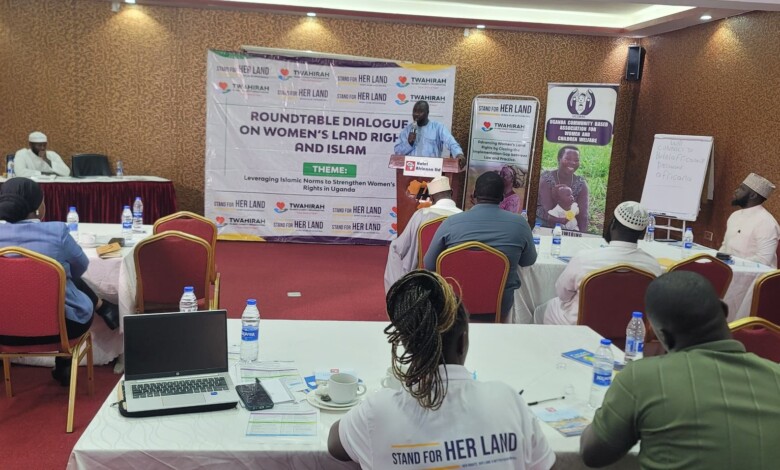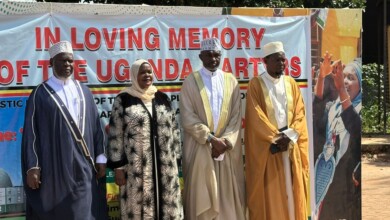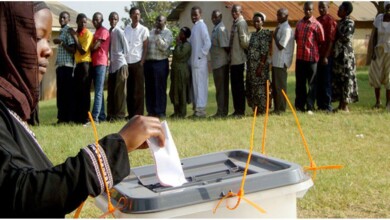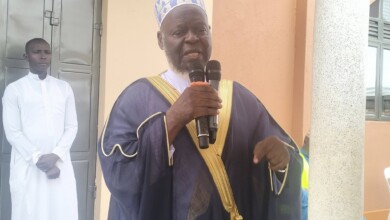Women urged to be involved in property ownership processes

By Ahmed Idriss
Clerics have advised women to actively participate in property acquisition and documentation processes instead of leaving the responsibility solely to their spouses, warning that such passivity often results in property being registered in the husband’s name only.
Speaking at a roundtable dialogue on women’s land rights and Islam in Kampala, Sheikhs Yusuf Bifamengo and Abdulkarim Mugendera emphasized that women’s failure to follow up on property ownership has cost many of them their rightful stake in land and homes.
“When men are left to buy property without the women’s involvement, they usually register everything in their names. It is important for a woman to take efforts to acquire property in her own name. It is not a crime, and it doesn’t break any law,” said Sheikh Bifamengo.
He added that in many cases, it is women who raise the funds used to acquire such property, yet they do not take part in registration or ownership decisions.
Sheikh Bifamengo, who is also an Islamic law scholar, underscored that marriage does not nullify a woman’s individual rights.
“You find people living together, buying property, but later separate—and one spouse takes everything. Sometimes, people claim to have been married, yet under Islamic law, they were not. We need to educate both men and women on what constitutes a valid marriage and what rights it entails,” he said.
The scholars noted that although women contribute to over 70% of land utilization in Uganda, they rarely own the land they work on.
They called upon husbands to support their spouses, women to assert their rights, and religious and cultural leaders to educate communities about women’s land ownership rights, ensuring security and dignity for women regardless of marital status.
The dialogue was organized by Twahirah Islamic Charity Organisation in partnership with the Uganda Community Based Association for Women and Children Welfare (UCOBAC).
The conference brought together Muslim clerics, legal scholars, and women land rights advocates, all calling for increased sensitization of women on property ownership, particularly in the context of divorce, separation, or the death of a spouse.
Sheikhat Zainabu Nakabugo encouraged women to utilize their Maher (compulsory marital gift) to purchase land or other property and to confidently register such assets in their own names.
“Many men have hoodwinked women into thinking that owning property in their own name shows disloyalty to the marriage. That is wrong. Women have a right to buy their own land, build their own houses and purchase property—with or without their husbands’ consent,” Nakabugo said.
Caroline Kayanja, UCOBAC’s Senior Programmes Officer on Women’s Land and Property Rights, said laws exist in Uganda that allow any individual to own land and property, but the problem lies in implementation, especially in the face of cultural and religious practices.
“Stand for Her Land, a global campaign to increase land rights for women, has realized that policies alone aren’t enough. Culture, norms, and religion play a significant role in how women access land and how the laws are implemented,” Kayanja explained.






